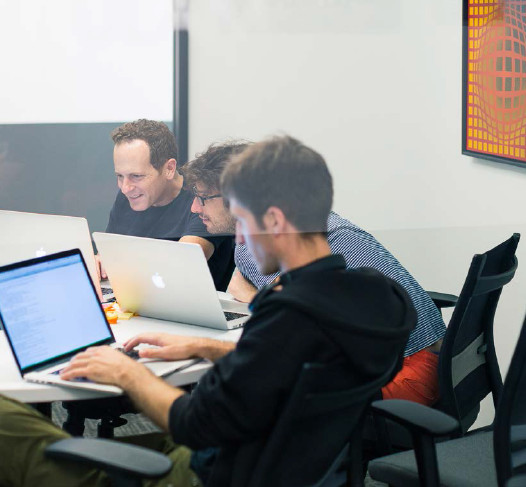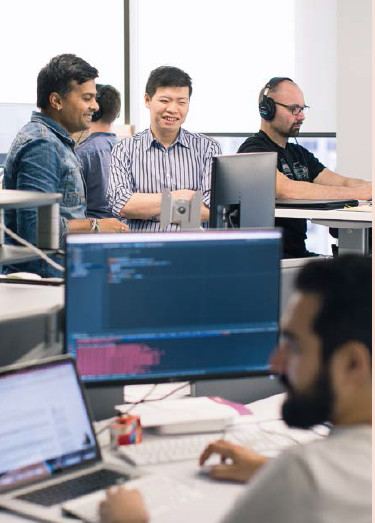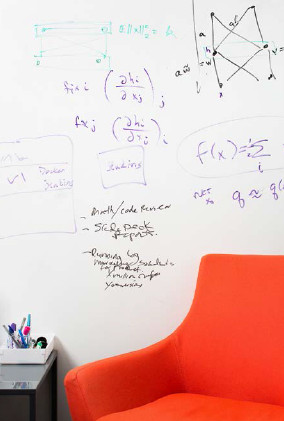Published: Friday January 06 2017Antoine Blondeau, co-founder of a pioneering artificial intelligence company, believes that there are no limits on what can be achieved by scaling up and distributing AI on a truly vast scale.When Antoine Blondeau and three collaborators co-founded Sentient Technology in 2007, they had an ambitious vision. They wanted to help solve some of the world’s most complex problems by harnessing the world’s computer capacity to develop artificial intelligence on a vast scale. And they felt well-positioned to do so, having worked together on the AI technology behind Apple’s Siri, the intelligent personal assistant that helps people get things done.They also saw that the convergence of two important trends would allow them to achieve their aim. One was the availability of relatively low-cost massive computing power, while the other was new AI techniques which could be scaled up to create autonomous decision-making applications. Such a platform could improve business performance and enrich people’s lives.Sentient is developing its operations in businesses which involve interactions between customers and companies. In some of those, the company develops products for specific sectors and sells them in the market: one example is intelligent e-commerce, while another is in financial services decision-making.
Topics:
Perspectives Pictet considers the following as important: AI, AI algorithms, deep learning, evolutionary computing, In Conversation With, Pictet Report
This could be interesting, too:
Claudio Grass writes 2023: A year in review
Claudio Grass writes US election: Red flags for investors
Claudio Grass writes US election: Red flags for investors
Perspectives Pictet writes House View, October 2020
Antoine Blondeau, co-founder of a pioneering artificial intelligence company, believes that there are no limits on what can be achieved by scaling up and distributing AI on a truly vast scale.
When Antoine Blondeau and three collaborators co-founded Sentient Technology in 2007, they had an ambitious vision. They wanted to help solve some of the world’s most complex problems by harnessing the world’s computer capacity to develop artificial intelligence on a vast scale. And they felt well-positioned to do so, having worked together on the AI technology behind Apple’s Siri, the intelligent personal assistant that helps people get things done.
They also saw that the convergence of two important trends would allow them to achieve their aim. One was the availability of relatively low-cost massive computing power, while the other was new AI techniques which could be scaled up to create autonomous decision-making applications. Such a platform could improve business performance and enrich people’s lives.
Sentient is developing its operations in businesses which involve interactions between customers and companies. In some of those, the company develops products for specific sectors and sells them in the market: one example is intelligent e-commerce, while another is in financial services decision-making. Other products are developed in sectors such as insurance and healthcare through partnerships with select companies and research institutions.

In e-commerce, for example, it targets large retailers and brands selling through medium to large-scale websites. Its Sentient Aware product is an AI-powered shopping technology that helps customers find what they are looking for. Instead of searching through endless pages of an online catalogue, they click on a product they like. Aware analyses the image and then suggests other options with similar attributes – constantly refining the search as the customer clicks on more products.
‘Data is overrated and intelligence is underrated,’ says Antoine Blondeau, who is Sentient’s CEO.‘When you go to a shoe store, a good sales assistant quickly works out what you are interested in and curates a selection of shoes to show you, using your reactions to narrow down the choices. Websites powered by Aware can identify subtleties of the shoe designs you click on which you may not even be conscious of and uses your selections to self-curate as good shop assistants do.
‘Aware produces a higher rate of sales and encourages people to stay longer on the website. Another of our products, Sentient Ascend enables retailers to understand what messages resonate with customers and segments them to offer products which they are more likely to find interesting – or even create websites for specific groups.’
Sentient is also working in hospitals with the Massachusetts Institute of Technology, monitoring the blood pressure of thousands of patients in intensive care units to predict the likelihood of sepsis early enough to prevent it. ‘This one simple predictor has proved to be accurate in over 90 per cent of cases and can allow medics to pre-empt it. Unfortunately, it has so far proved hard to turn into a product – though I believe it will be possible.’

In financial services, AI can help businesses make decisions which have an impact on their revenues or bottom line, such as trading securities or rebalancing a portfolio. It can also assess credit risk efficiently to authorise loans and set parameters for them.
The company is piloting an experimental hedge fund using AI algorithms to manage a small equity portfolio. ‘It’s a fully functional hedge fund that trades the money of Sentient’s own investors every day. The initial results have been promising and we plan to open it to outside investors soon.’
With a combination of AI and proprietary big data, he believes that technology companies will be able to move into asset management – provided they can develop the investment expertise. ‘If Google wanted to be a hedge fund, its great insights into what’s happening could make it the most successful hedge fund in the world.’
Antoine Blondeau’s early life combined computer science and business. ‘I used to program as a kid and continued as I grew up – all my jobs as an adult were in technology. I also hold an MBA from the Paris Graduate School of Management (ESCP) and studied at the faculties of Economics and Commerce at Tokyo’s Chuo University.
‘About eight years ago, I realized there was a unique opportunity to bring together state-of-the-art AI and the growth in available computer capacity globally and apply them to the massive amount of data that is becoming available. With our background in working on the technology behind Siri over the previous decade, it was a “no brainer”.
‘The four of us created Sentient in 2007 and started to recruit our first employees in 2008, self-funding for the first two to three years to reach the proof of concept stage. We then raised a total of USD143 million in venture capital, more than any other business in the artificial intelligence field.’
The company, which is based in San Francisco, employs 110 staff, 80 per cent of whom have high level skills in disciplines such as software engineering and data science. One part of its operations is Sentient Labs which searches for answers to big questions, often in collaboration with outside research, educational and commercial partners.

One of Sentient’s first challenges was to obtain the massive computer power required to power its AI systems cost-effectively. This was done by linking computers in around 4,000 sites worldwide, many of them in data centres that power internet services such as websites and mobile apps. They often have idle capacity, having been built to handle data surges such as in US retail sales on Black Friday.
This has linked together 2 million central processing unit (CPU) cores and 5,000 graphic processing unit (GPU) cards – a scale not available with leading cloud providers. The company had to solve some complex security and privacy challenges to achieve the enormous scale required to use two AI techniques: evolutionary computation and deep learning.
Evolutionary computing uses the principles of biological evolution to learn, adapt and react, in the same way that living organisms have come to dominate their environments. Sentient’s system, which it calls evolutionary intelligence, creates many agents – the equivalent of genes – to find out which can best solve a particular problem. The first generation are likely to perform poorly, but the system keeps the best and uses them to generate the next generation. This process is repeated millions of times by using the company’s computing scale, and gradually converges on solutions to the problem.
Deep learning is inspired by the way the brain works through neural networks, and helps Sentient’s AI systems analyse images and other forms of information to understand a user’s preferences and intentions. It constantly refines, organises and delivers what it offers users, detecting what they want rather than simply providing more and more choices.
Combining the two techniques with Sentient’s computing scale allows the company to evolve better neural networks much faster and more cheaply, says Antoine Blondeau. And that then raises the possibility of even more radical changes.
‘We have decided to apply these AI tools to developing new neural networks and leap-frogging existing architectures, so that our systems can actually replace us!
